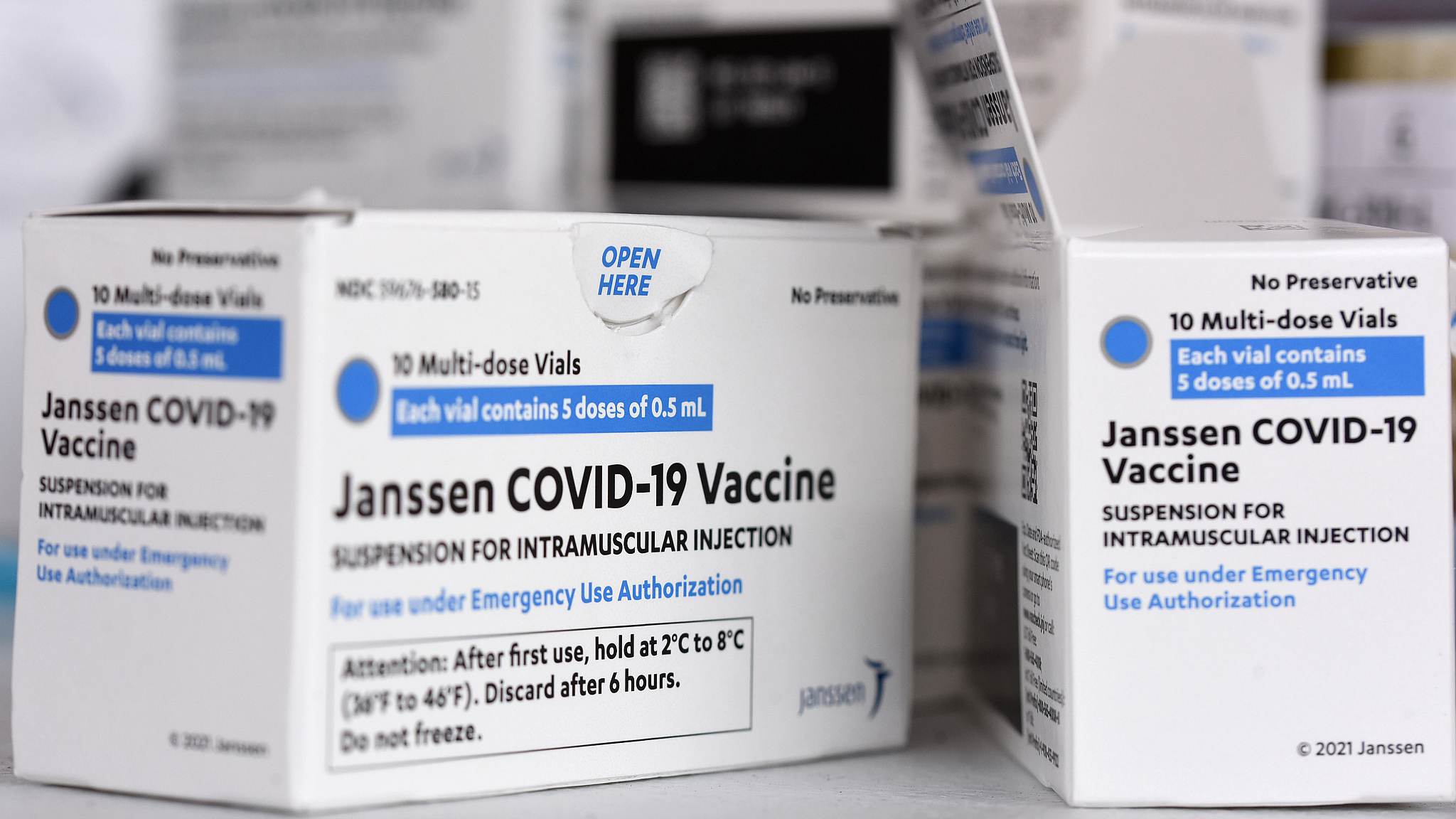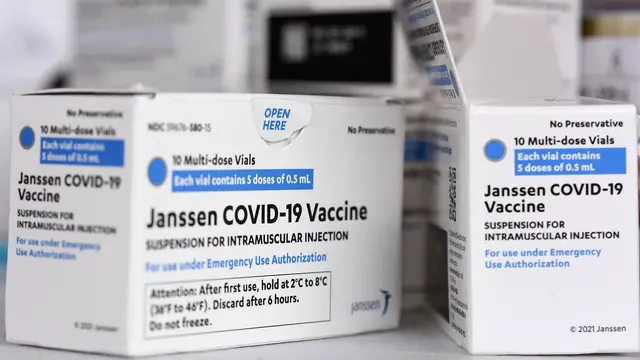
Johnson & Johnson's COVID-19 vaccine boxes. /CFP
The U.S. Food and Drug Administration (FDA) on Monday added a new warning to Johnson Johnson's COVID-19 vaccine, saying that data suggests there is an increased risk of a rare neurological disorder known as Guillain-Barre syndrome (GBS) in the six weeks after inoculation.
GBS is an immune system disorder that occurs when the body's immune system mistakenly attacks some of its nerve cells, causing muscle weakness and sometimes paralysis that typically is temporary. Health officials described the side effect as a "small possible risk" for those getting the shot.
Around 12.8 million people have received JJ's one-dose vaccine in the United States. The FDA said 100 preliminary reports of GBS in the vaccine recipients include 95 serious cases that required hospitalization and one reported death.
Most cases were reported in men – many 50 and older – and usually about two weeks after vaccination, according to the Centers for Disease Control and Prevention (CDC).
The government said the vaccines most used in the U.S., made by Pfizer and Moderna, show no risk of the disorder after more than 320 million doses have been administered.
JJ said in a statement it has been discussing the reports with the FDA and other health regulators around the world.
The new warning will be included in pamphlets given to people getting the JJ shot. They should seek medical attention if they experience symptoms, including tingling sensations, trouble walking and double vision, the FDA said.
Last week, European regulators recommended a similar warning for AstraZeneca's COVID-19 shot, which is based on a similar technology as JJ's vaccine.
The warning is another setback for the JJ shot, which was supposed to be an important tool for vaccinating in hard-to-reach areas and among those hesitant to be vaccinated because it requires only one shot and has less stringent storage requirements than the Pfizer or Moderna vaccines.
But the use of the vaccine has already been linked to a very rare, potentially life-threatening
blood clotting
condition and slowed by production problems at the main plant where it is being made.
(With input from Reuters, AP)
 简体中文
简体中文

